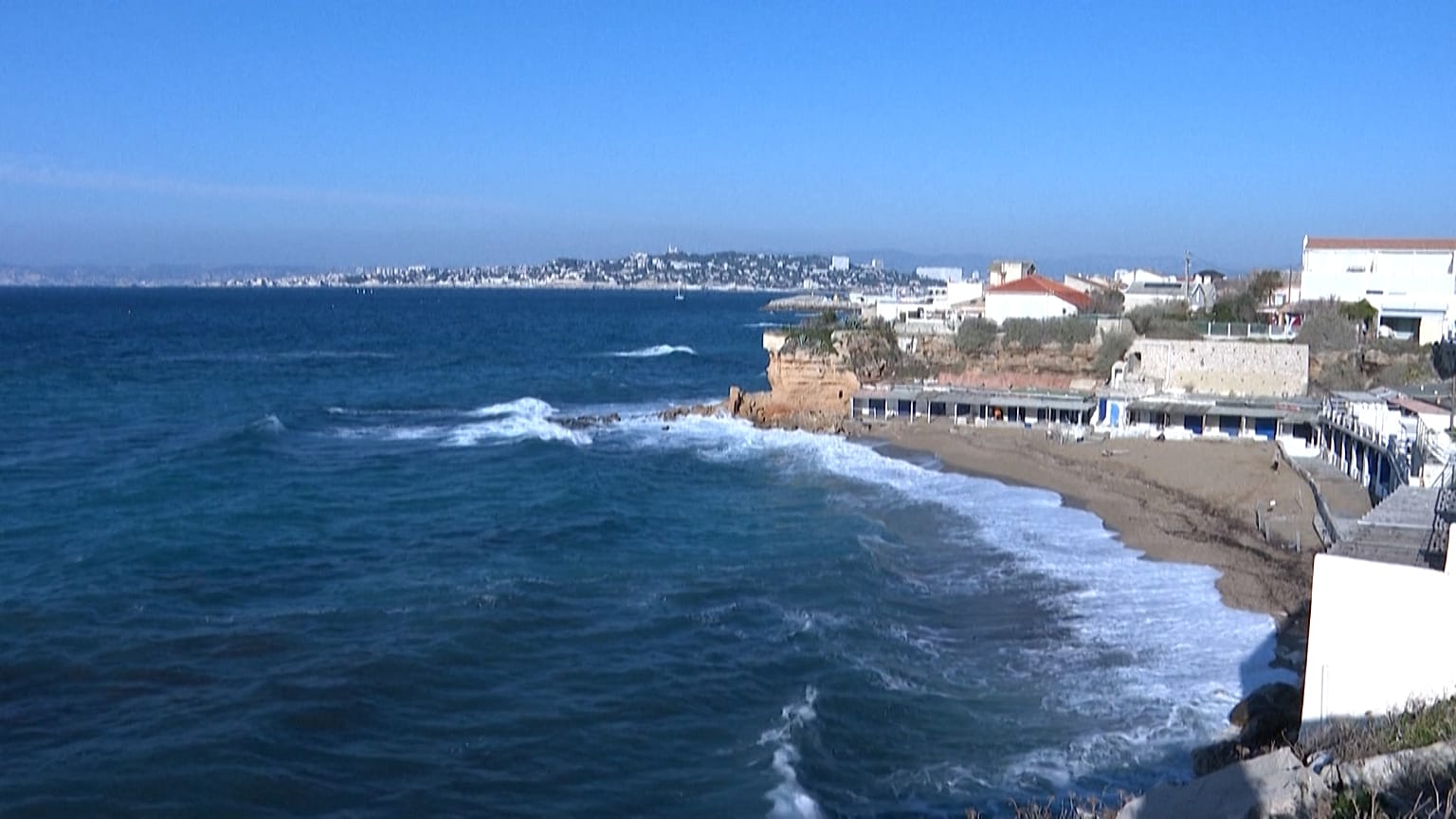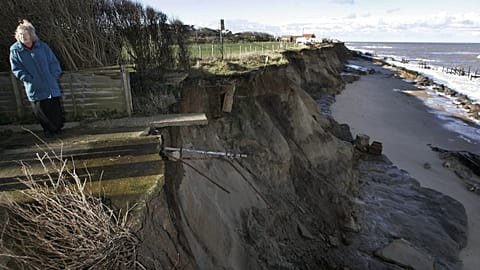Marseille’s coastal huts have become symbols of the city and of a unique way of life.
On a beach in the southern French city of Marseille, there’s a community living in a terrace of small whitewashed huts just metres from the water’s edge.
 ADVERTISEMENT
ADVERTISEMENT
 ADVERTISEMENT
ADVERTISEMENT
The dwellings have become symbolic of the city and of a unique way of life.
But now, residents of Marseille’s beach huts fear for the future of their homes.
As sea levels rise, the structures and the culture of hut living are under threat from beach erosion.
Marseille’s beach hut community
At the Calanque de la Verrerie, a row of huts overlooks a pebbled beach. Frank is one resident. His house has bright blue wooden doors and driftwood terrace partitions.
"The life in a hut is great,” he says. “It's a small village, everyone knows each other, we share, we have big tables like in the old days and that's quite extraordinary. The children can play in safety."
Some huts are used by residents of the city centre as weekend getaways. They store boats inside and set up tables on the terrace to prepare ‘bouillabaisse’, a traditional Provençal fish soup.
Frank, however, lives in his hut all year round. Inside, a kitchenette faces a cushion-strewn sofa and surfboards decorate the walls.
Although some aspects of hut life are still idyllic, the encroaching sea is becoming a regular threat.
Huts have ‘closed one after another’
"You know, a hut is a boat, a boat in the harbour, it doesn't move, but when the sea rises, it's there and it comes down in front of us," says Frank.
Some of the dwellings are just a couple of metres from the shoreline. At times, “they are completely flooded,” he says.
“They have water coming into the huts, it's so violent.”
Frank’s house is one of the furthest back from the sea, but it still isn’t safe. He says that the cement walkway running in front of the row of huts is sometimes filled with water as waves crash over the low stone wall.
"Practically all the huts in Marseille have closed one after the other, precisely because of the coastline, and because the sea has gained ground on the beach, on the cliffs."
Cliff collapses threaten residents
Eliane Peroux, the co-owner of a hut in the Calanque de la Verrerie, says residents have “tangible evidence” of beach erosion.
As well as rising water levels, the cliff cupping the bay is threatening their houses. Red signs erected beneath now warn of rock falls.
“We have quite regular collapses of the cliff that shelters us, which constitute very small headlands, on the right and on the left," Peroux says.
Hut residents risk eviction
This is not the first coastal community in France where properties are being threatened by coastal erosion. Soulac-sur-Mer, once a vacation spot of golden sands and fragrant pine forests, has suffered some of the fastest coastal erosion in France.
In 2014, the local council made the decision to relocate residents who had been living in an 80-flat apartment block on the shoreline over fears for their safety.
Peroux is worried about a similar fate for the Marseille hut residents.
“If the climatic and especially the geological risk becomes dangerous for people's safety, it is possible that we will no longer be allowed to live in these buildings," she says.
"We are on probation. We all are. [...] that's what makes the place precious too. We appreciate each day spent in this special place, knowing that it is ephemeral, like life, it is a symbol."
**Watch the video above to see Marseille's beach hut residents.
**

















